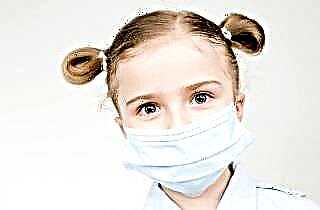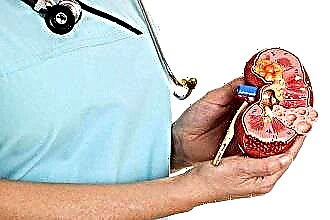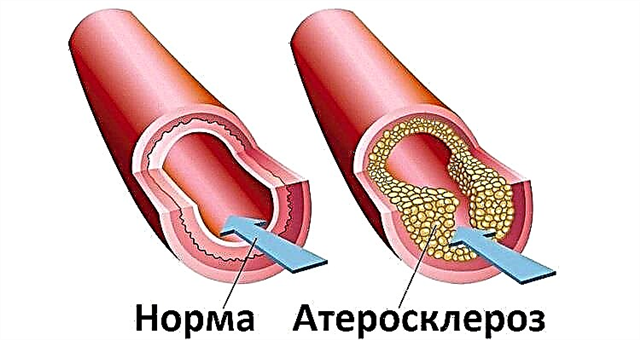Barking is a completely unproductive dry, debilitating cough. Its characteristic feature is a sound similar to a dog's barking. It gives the child severe discomfort, as it is often accompanied by sleep disturbances, painful sensations and even vomiting.
Basically, such a cough appears when the larynx is engulfed in an actively developing inflammatory process. Its specific sound tone is due to the presence of inflammation and increasing swelling of the vocal cords. Doctors called this condition in the child the false croup syndrome - it progresses very quickly and poses a real threat to the life of the baby. Therefore, the treatment of a barking cough in a child should be carried out urgently, without waiting for the development of dangerous complications.
When arises
 A dry cough, similar to barking, can cause diseases of a viral or infectious origin, as well as all sorts of allergic reactions. There are a number of conditions that are associated with the risk of developing this type of cough in children. So, it may well appear when:
A dry cough, similar to barking, can cause diseases of a viral or infectious origin, as well as all sorts of allergic reactions. There are a number of conditions that are associated with the risk of developing this type of cough in children. So, it may well appear when:
- pharyngitis and laryngitis - diseases characterized by inflammation of the mucous membrane in the pharynx and larynx;
- false croup (medical name - acute stenosing laryngotracheitis) - a disease accompanied by swelling of the ligaments and larynx;
- SARS, parainfluenza, influenza, infections (adenovirus or respiratory syncytial);
- the baby's tendency to various allergic reactions;
- real croup (symptom of diphtheria);
- whooping cough.
Since most children are now vaccinated, whooping cough and diphtheria are rare. Therefore, you should pay closer attention to the other reasons why a barking cough may appear in children. Moreover, it must be treated immediately, because the child may suffocate.
Note that both 4-month-old babies and older babies can suffer from it. Often this alarming symptom occurs in children under 5 years of age.
The main signs
 A dry barking cough in a child usually appears at the onset of the disease. This allows quick action to be taken. As already mentioned, its resemblance to a dog's bark is due to swelling of the larynx and a change in the timbre of the voice as a result (hoarseness occurs). The child cannot cough up phlegm. Exhausted by bouts of coughing, the baby quickly weakens and refuses to eat, drink, play.
A dry barking cough in a child usually appears at the onset of the disease. This allows quick action to be taken. As already mentioned, its resemblance to a dog's bark is due to swelling of the larynx and a change in the timbre of the voice as a result (hoarseness occurs). The child cannot cough up phlegm. Exhausted by bouts of coughing, the baby quickly weakens and refuses to eat, drink, play.
Common signs of this type of cough include:
- weakness, lethargy and rapid onset of fatigue;
- headache;
- sore throat;
- snot;
- difficulty breathing;
- hoarse voice;
- enlarged lymph nodes;
- inflammation of the larynx and its swelling;
- nausea and vomiting.
If it is incorrect to fight the disease, self-medicating or ignoring the prescriptions given by the attending physician, you can provoke quite serious complications.
And if it's whooping cough
 Parapertussis and pertussis are very similar viral diseases. You can get infected by airborne droplets, traditional for any ARVI. After entering the child's body, the virus settles in his respiratory tract and begins to secrete a specific substance. It irritates the mucous membrane lining the respiratory system and causes a violent barking cough. Para-whooping cough and whooping cough can be recognized immediately. The smaller the child, the more pronounced this symptom.
Parapertussis and pertussis are very similar viral diseases. You can get infected by airborne droplets, traditional for any ARVI. After entering the child's body, the virus settles in his respiratory tract and begins to secrete a specific substance. It irritates the mucous membrane lining the respiratory system and causes a violent barking cough. Para-whooping cough and whooping cough can be recognized immediately. The smaller the child, the more pronounced this symptom.
With diagnosed whooping cough, a debilitating barking cough usually lasts about 3 months. Because of this, the disease received a second name - "Hundred Day Cough". But parapertussis is characterized by a lighter course. With it, the body temperature remains within normal limits. In the intervals between coughing attacks, the baby looks quite healthy.
It should be noted that whooping cough is a huge danger for children under 3-4 years old. Previously, he claimed many lives. Today, babies who are only a few months old are sure to get vaccinated against this disease.
Of course, even a vaccinated child remains at risk of infection. However, after vaccination, the disease will be mild. If for any reason the child is unvaccinated, parents need to be especially vigilant. If a barking cough appears, even if it is very weak, you should immediately consult a doctor.
What should be done if a child suffers from severe attacks of a barking cough? Here are some recommendations on how to treat it and how to do it.
General recommendations
First of all, you need to consult a doctor, come to him for an examination, get a specific diagnosis and proceed with the prescribed treatment. However, there are several secondary, but equally important factors that can speed up recovery. Let's talk about them.
 For the entire period of treatment of the child, he needs to adhere to a sparing diet. We will have to exclude all products that irritate the mucous membrane lining the bronchi and larynx. Sugar, salt and other spices are strictly prohibited. The diet should be filled with broths, soft cereals, vegetables and mashed potatoes from various fruits.
For the entire period of treatment of the child, he needs to adhere to a sparing diet. We will have to exclude all products that irritate the mucous membrane lining the bronchi and larynx. Sugar, salt and other spices are strictly prohibited. The diet should be filled with broths, soft cereals, vegetables and mashed potatoes from various fruits.- In each room that a child visits, it is necessary to create the most comfortable conditions. It is important to avoid drafts, but also avoid overheating. In the first few weeks after the onset of the illness, you will have to forget about walking on the street. The room where the sick baby sleeps should be regularly ventilated. But this should be done literally for 5 minutes and only at a time when the child is absent there.
- Since the child's body is weakened during the period of illness, it simply does not have enough strength to fight the new virus or bacteria. Therefore, it is categorically impossible to contact a sick baby with any other sick person.
When a child is worried or afraid, the coughing spells become even more severe. This is due to the contraction of the muscles in the larynx - this is how the body reacts to stress. The baby may start to choke.
To calm your child down, sit him down on your lap, tell an interesting story, sing him a funny song, or let him play with something bright. After 3 years, you can already turn on his favorite cartoons.
Inhalation
 One of the most effective ways to reduce laryngeal edema is steam inhalation. To treat bronchitis or laryngitis, you will need to take a saucepan, pour water into it and add vegetable oil and baking soda to it (if you are not allergic, you can add dried chamomile or sage). After boiling, put out the heat and place the child near the pot. Do not forget about the precautionary measures - after all, it will contain boiling water.
One of the most effective ways to reduce laryngeal edema is steam inhalation. To treat bronchitis or laryngitis, you will need to take a saucepan, pour water into it and add vegetable oil and baking soda to it (if you are not allergic, you can add dried chamomile or sage). After boiling, put out the heat and place the child near the pot. Do not forget about the precautionary measures - after all, it will contain boiling water.
If your baby is not yet 2 years old, you can close the kitchen door and put the saucepan with the lid open on low heat. Let it boil, and you hold the child near the stove so that he inhales the beneficial steam. In addition, the baby can be held for about 15 minutes in a bathroom preheated by boiling water. This procedure should be repeated several times a day. Warm and humidified air will help soften coughs and help your baby breathe easier.
Mineral water inhalation is also an effective way to treat a barking cough. True, to use it, you will need a special device - an inhaler. If the cause of such a cough is pharyngitis and the child has no allergies, then several inhalations with eucalyptus essential oil can be done.
What to drink and what to breathe
You can give your baby any slightly warmed drinks, as well as distilled water. It is better to replace milk with fresh natural juices, after diluting them.During the period of illness, the child loses a fairly large volume of fluid. That is why it is extremely important to replenish stocks in a timely manner. Drinking regularly and abundantly makes the phlegm thinner and prevents the onset of dehydration.
 It is extremely important to monitor the microclimate in the nursery. The air in it should be made moderately warm, sufficiently humidified and fresh. It's good if you have a humidifier. With this useful device, you can easily and quickly create air "like in the tropics." During illness, this is simply necessary.
It is extremely important to monitor the microclimate in the nursery. The air in it should be made moderately warm, sufficiently humidified and fresh. It's good if you have a humidifier. With this useful device, you can easily and quickly create air "like in the tropics." During illness, this is simply necessary.
If there is no device, you can use diapers soaked in water or any other piece of cloth thrown over the radiator. In addition, it is advisable to disperse containers filled with water throughout all the rooms of the dwelling.
Warming procedures
If the child has a normal temperature, you can warm up the calves of the legs with the help of special warming creams or mustard plasters. Alternatively, give your feet a hot bath. As a result of such procedures, blood should flow to the legs, distracting from the inflamed larynx. This means that the puffiness will not worsen.
It is not recommended to use special ointments, rubbing them on the back and chest of the baby. They contain essential oils to which children under 3 years of age may react with allergies. As a result, there will be a complication in the form of bronchospasm and bronchial obstruction.
Allergy medications
 To reduce the swelling of the larynx, the child needs to take some kind of antihistamine. Today, the choice of such drugs is very wide:
To reduce the swelling of the larynx, the child needs to take some kind of antihistamine. Today, the choice of such drugs is very wide:
- "Suprastin" (active ingredient - chloropyramine);
- "Cetrin" (active ingredient - cetirizine);
- Claritin (active ingredient - loratidine);
- "Clemastine" (active ingredient - tavegil);
- "Kestin" (active ingredient - ebastine);
- "Zyrtek".
Stick to the pediatric dosage indicated in the instructions for the drug. When the baby is under 3 years old, it is best to choose a remedy in the form of a syrup. If there is none, you can grind the tablet to a powder, pour it into a spoon, add water and give to drink.
If you see that the baby has difficulty breathing, but he is not asthmatic, refrain from the temptation to use an aerosol with an anti-asthma drug. Of course, you can ease the symptoms with it. However, such medicines contain very serious hormonal substances. Therefore, only a specialist can prescribe them and determine the dosage.
If the baby began to inhale air noisily and the jugular fossa is being pulled in, do not hesitate to call an ambulance. Give your baby a steam inhalation before the doctors arrive. If necessary, the doctor will prescribe inhalations with drugs "Benacort" or "Pulmicort".
Antitussives and expectorants
 To improve the separation of sputum, drugs such as Ambrobene, Lazolvan, Gedelix, Gerbion, Mukaltin, Alteika, Doctor Mom syrup and others are often used. Cough suppressants should only be taken when prescribed by a doctor. If the doctor named acute laryngotracheitis as the cause of the barking cough, it is necessary to make a wet cough out of a dry cough as soon as possible, since the latter effectively removes harmful bacteria from the body. But when a wet cough appears, there will be a need for expectorant drugs.
To improve the separation of sputum, drugs such as Ambrobene, Lazolvan, Gedelix, Gerbion, Mukaltin, Alteika, Doctor Mom syrup and others are often used. Cough suppressants should only be taken when prescribed by a doctor. If the doctor named acute laryngotracheitis as the cause of the barking cough, it is necessary to make a wet cough out of a dry cough as soon as possible, since the latter effectively removes harmful bacteria from the body. But when a wet cough appears, there will be a need for expectorant drugs.
What to do for prevention
To prevent recurrence of attacks of barking cough and swelling of the larynx, you need:
- engage in the prevention of acute respiratory infections and acute respiratory viral infections (parents need to replenish their knowledge of the treatment of children's colds and realize the importance of timely seeking medical help);
- pay attention to strengthening the child's immunity (both pharmacy products and "grandmother's" recipes are suitable);
- treat barking cough correctly;
- sanitize foci of chronic infection;
- temper the child in every possible way, periodically send him to a sanatorium for recovery;
- monitor the rationality of food;
- tidy up the wakefulness and sleep patterns, provide constant access to fresh air.
And finally
 A strong exhausting cough for a child is in any case an alarm signal. And not only for his parents, but also for the doctor who is watching him. You should especially be on your guard if such a formidable symptom appears in a baby. The sooner the cause of its occurrence is found out and the correct treatment is prescribed, the sooner the child will recover.
A strong exhausting cough for a child is in any case an alarm signal. And not only for his parents, but also for the doctor who is watching him. You should especially be on your guard if such a formidable symptom appears in a baby. The sooner the cause of its occurrence is found out and the correct treatment is prescribed, the sooner the child will recover.
Only a doctor can establish the cause of the cough and make a final diagnosis. He will also write down the appropriate course of treatment. The main thing is not to start the disease and not try to get rid of the barking cough on your own - for example, with the help of traditional medicine. Sometimes the cost of such experiments can be the life of a child.

 For the entire period of treatment of the child, he needs to adhere to a sparing diet. We will have to exclude all products that irritate the mucous membrane lining the bronchi and larynx. Sugar, salt and other spices are strictly prohibited. The diet should be filled with broths, soft cereals, vegetables and mashed potatoes from various fruits.
For the entire period of treatment of the child, he needs to adhere to a sparing diet. We will have to exclude all products that irritate the mucous membrane lining the bronchi and larynx. Sugar, salt and other spices are strictly prohibited. The diet should be filled with broths, soft cereals, vegetables and mashed potatoes from various fruits.

